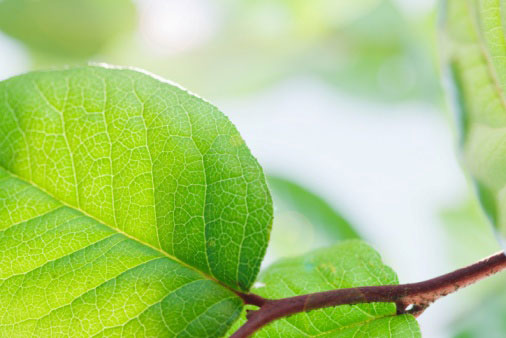Moringa Leaves

Nutritional analyses indicate that Moringa leaves contain a wealth of essential, disease-preventing nutrients. They even contain all of the essential amino acids, which is unusual for a plant source. Since the dried leaves are concentrated, they contain higher amounts of many of these nutrients, except vitamin C. Nutritional contents of vegetable matter can vary depending on varieties, seasons, climate, and soil conditions. Thus, different analyses produce different figures. For example, some studies show potassium content of Moringa leaves as lower and iron content as higher than what is shown here.
Vitamin A is obtained from vegetables in the form of its precursor, carotene. The intestines only absorb a fraction of the carotene in foods. Thus, there are differing views on how to calculate the amount of carotene that is absorbed and converted to vitamin A. For vitamin A content, Gopalan et al and Fuglie simply give the figures for carotene or beta-carotene. The most commonly accepted conversion factor of carotene to vitamin A (retinol) is 6:1.
According to Dr. Lowell Fuglie, the West African representative of the Church World Service who used the Moringa tree as a base for a nutrition program, "for a child aged 1-3, a 100 g serving of fresh cooked leaves would provide all his daily requirements of calcium, about 75% of his iron and half his protein needs, as well as important amounts of potassium, B vitamins, copper and all the essential amino acids. As little as 20 grams of leaves would provide a child with all the vitamins A and C he needs."
To get an idea of how much nutrition is in Moringa, an 8g amount of leaf powder will satisfy 14% of protein, 40% of calcium, 23% of iron and nearly all the vitamin A for a child between the ages of 1-3!
Organic Moringa is perfect for pregnant women to satisfy their iron and calcium intake requirements. By taking Organic Moringa, a woman will support her needs for iron and calcium from pregnancy through breast feeding term.
- Amino Acid Content
- Vitamin and Mineral Content
| Amino Acid Content of Moringa Leaves All values are per 100 grams of edible portion. |
||
| Amino Acid | Fresh Leaves |
Dried Leaves |
| Arginine | 406.6 mg |
1,325 mg |
| Histidine |
149.8 mg |
613 mg |
| Isoleucine |
299.6 mg |
825 mg |
| Leucine |
492.2 mg |
1,950 mg |
| Lysine |
342.4 mg |
1,325 mg |
| Methionine |
117.7 mg |
350 mg |
| Phenylalanine |
310.3 mg |
1,388 mg |
| Threonine |
117.7 mg |
1,188 mg |
| Tryptophan |
107 mg |
425 mg |
| Valine |
374.5 mg |
1,063 mg |
| Vitamin and Mineral Content of Moringa Leaves All values are per 100 grams of edible portion. |
||
| Vitamin/Mineral | Fresh Leaves |
Dried Leaves |
| Carotene (Vit. A) |
6.78 mg |
18.9 mg |
| Thiamin (B1) |
0.06 mg |
2.64 mg |
| Riboflavin (B2) |
0.05 mg |
20.5 mg |
| Niacin (B3) |
0.8 mg |
8.2 mg |
| Vitamin C |
220 mg |
17.3 mg |
| Calcium |
440 mg |
2,003 mg |
| Calories |
92 cal |
205 cal |
| Carbohydrates |
12.5 g |
38.2 g |
| Copper |
0.07 mg |
0.57 mg |
| Fat |
1.70 g |
2.3 g |
| Fiber |
0.90 g |
19.2 g |
| Iron |
0.85 mg |
28.2 mg |
| Magnesium |
42 mg |
368 mg |
| Phosphorus |
70 mg |
204 mg |
| Potassium |
259 mg |
1,324 mg |
| Protein |
6.70 g |
27.1g |
| Zinc |
0.16 mg |
3.29 mg |


